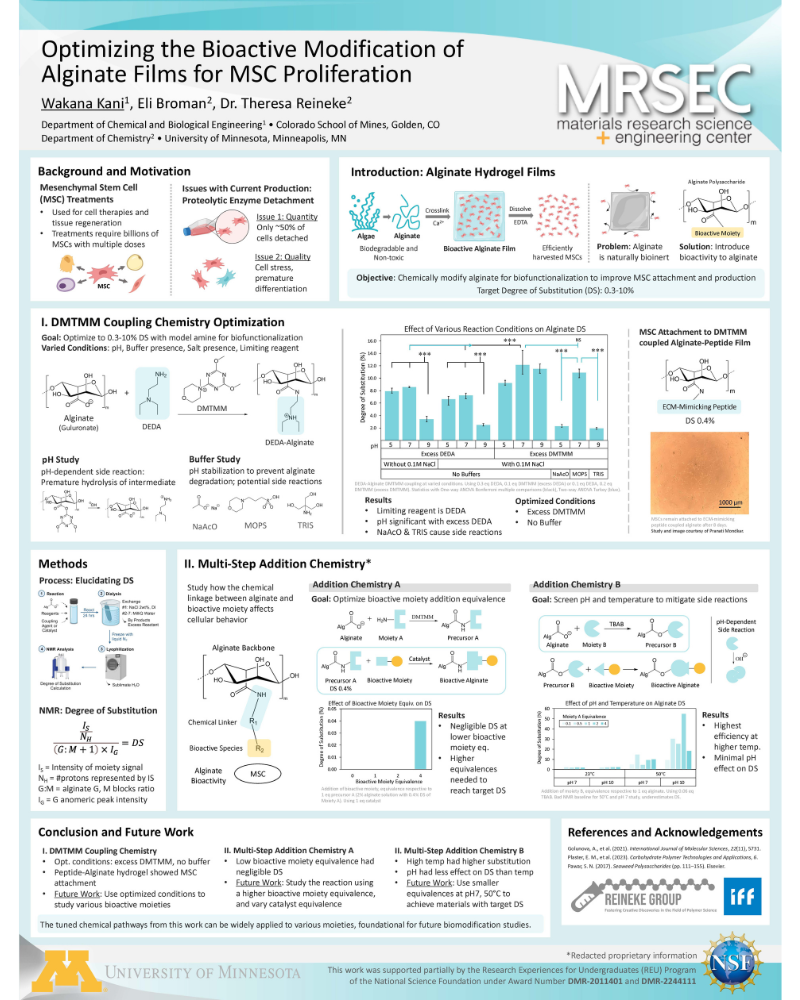
Mesenchymal stem cell (MSC) treatments are promising for cellular therapy and tissue regeneration for their abilities to self-renew and differentiate. Treatments require billions of MSCs, but current production methods using proteolytic enzyme detachment have issues with cell detachment and premature differentiation. MSC health and quantity (detachment efficiency) can be improved by using dissolvable bioactive modified-alginate films instead.
Various moieties were coupled to the alginate carboxylate anion using 4-(4,6-Dimethoxy-1,3,5-triazin-2-yl)-4-methylmorpholinium chloride (DMTMM). This coupling chemistry was optimized using N,N-diethylethylenediamine (DEDA) as the model amine. We elucidated the effects of different reaction conditions including pH, buffers, and the limiting reagent. Alginate films modified with DEDA, arginine methyl ester (AME), or ECM-mimicking peptides were tested for MSC attachment; only peptides were bioactive.
Other addition chemistries are investigated to study how the chemical linkage—bonding between the alginate and bioactive moiety—affects cellular behavior. These multi-step schemes make use of DMTMM or tetrabutylammonium bromide (TBAB) to attach a functional group that is useful in an orthogonal chemistry. Each set is optimized by screening temperature, pH, and reactant equivalences. The addition chemistry pathways elucidated from this work can be widely applied to different moieties, serving as a foundation for future biofunctional modifications.
This project functions as a green chemistry project utilizing a renewable resource, and optimizing a coupling chemistry for efficient moiety attachment. DMTMM coupling is aqueous and has low hazards.